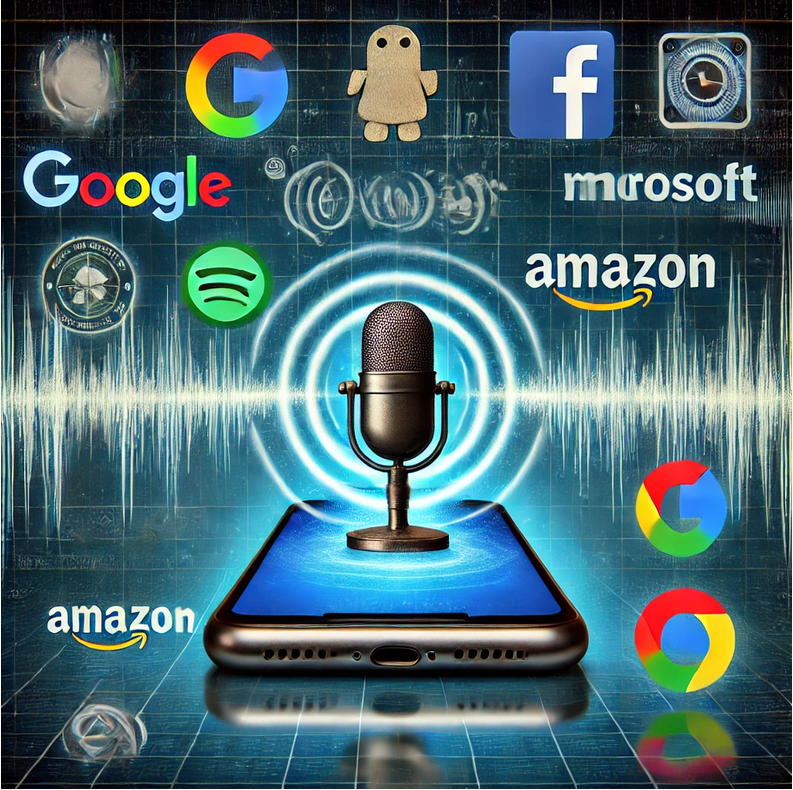Is Your Smart Device Listening to You? Uncovering the Evidence Against Google, Microsoft, Meta, and Amazon
In a world where technology is deeply embedded in the fabric of our lives, it has become increasingly prudent to care about privacy. In this regard, recent evidence shows that such tech giants as Google, Microsoft, Meta (previously Facebook), and Amazon might be listening to your private conversations through smart devices, in the name of “user experience improvement.” How real are these claims, and what does that portend for our privacy?
Understand the Claims: Are the Giant Tech Companies Spying on All of Us?
The recent advancement in smart speakers and virtual assistants, among other AI-driven contraptions, makes concerns about privacy dominant. Some of these are Google Home, Amazon Alexa, Microsoft’s Cortana, and Facebook Portal. Such devices were designed to only wake up to specific “wake words” to activate functionalities but have become centers of debate due to some whistleblowers, investigative reports, and complaints from users that these devices listen more than people may think.
Reflect on the Following:
Unintended Activation. There have been many stories about smart devices turning on without the owner giving the wake word; people are asking what they can be listening to.
Third-Party Contractors: It has leaked that tech companies often hire third-party contractors to listen and transcribe recordings that they claim help improve AI algorithms. These recordings include private conversations at times.
Such documents are saturated with ambiguous language that provides leeway for wide discretion to be exercised in meeting expectations within the confines of terms and conditions imposed by the tech giants.
What does it say?
In 2024, a number of investigative reports shed some light on the fact that Amazon, Google, Meta, and Microsoft may be practicing what most users never expect or grant permission to, even though whistleblowers have emerged within some companies indicating thousands of private conversations reviewed for better AI and machine learning models.
But the tech giants argue that these recordings are anonymous and used solely for the purpose of improving service quality. The truth is that there are human ears listening to private conversations. There lies concern over privacy because the distinction between “data for service improvement” and “surveillance” has been unclear.
Is this legal? The privacy implications
Such practices are not legal in every region; for example, in Europe, the General Data Protection Regulation (GDPR) has enforced the process of collection and processing of personal data. They demand explicit consent from users before collecting their personal data. The California Consumer Privacy Act in the U.S., although provides some level of protection, the set of such laws is not as extensive. In case such companies get caught to be violating these regulations, they might face severe penalties and litigation.
But beyond legality, there’s another ethical question: should high-tech companies have the ability to listen in on our conversations, even for so-called “improvements”? Are we trading our privacy unwittingly for convenience?
How to Protect Yourself from Possible Spying
Whether they are spying or not, it is always good sense to take measures about your privacy. Here are some practical things to consider:
Ensure to review all these settings on your devices and apps: Look out for an option to turn off the microphone where you don’t need it.
Disable ‘Always-On’ Features: Most smart speakers have a mute button or a way to disable this always-on listening feature. Use that when you’re not actively using the device.
Clean Voice Recordings Frequently: Some of the intelligent devices enable you to listen and delete your audio history. The regular deletion of records can reduce the risk of anyone using your data without permission.
Choose Privacy-Oriented Alternatives: Some tech companies develop products that prioritize more privacy concerns. Keeping this in mind, do some research and choose devices that align with your values.
Stay Informed and Vigilant: Follow the latest developments in digital privacy. This will better position you to know exactly what you should be doing with the technology you use today.
The Bottom Line: A Call for Greater Transparency and Accountability
We, as consumers, need to demand more transparency from them, and hold these tech giants accountable. We need to ask the question of to what extent these companies should be allowed access into our private lives and push for stronger regulations that protect the rights of users to be private.
Although tech giants like Google, Microsoft, Meta, and Amazon are integral components of our digital life, the convenience-surveillance line needs a clear demarcation. Until then, it is up to us to protect our privacy proactively.
Conclusion: Are You Comfortable with What Your Devices Might Be Hearing?
In the end, it all hinges on trust: can we trust these tech companies to respect our privacy, or have we traded in intimate conversations for the sake of convenience? The evidence certainly gives us a reason to pause and think about how we interact with our smart devices.
It’s time to talk, not just to our devices, but about them before those devices end up knowing more about us than we ever intended.
